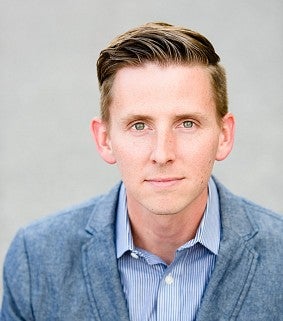Faculty bio | Research website | X / Twitter
Biography:
Seth Lewis is an internationally recognized expert on news and technology, with more than 10,000 citations to a body of work that includes nearly 100 journal articles and book chapters. His co-authored the book, “News After Trump: Journalism's Crisis of Relevance in a Changed Media Culture,” which was published by Oxford University Press. His research, which broadly addresses the social implications of emerging technologies, focuses on the digital transformation of journalism — from how news is made (news production) to how people make sense of it in their everyday lives (news consumption). Lewis is a fellow with the Tow Center for Digital Journalism at Columbia University, an affiliate fellow of the Information Society Project at Yale Law School, an affiliated faculty member of the University of Oregon's Agora Journalism Center and Center for Science Communication Research, and is a former visiting fellow at the University of Oxford's Reuters Institute for the Study of Journalism. During the past decade, Lewis has been a leader in studying innovations in digital journalism, both in examining developments in journalistic practice as well as in introducing new conceptual frameworks for making sense of change. In 2009, he co-organized one of the first major studies of journalists’ use of social media, in an article that has become one of the most-cited papers in the field. Since that time, Lewis’ research has examined developments in digital audience analytics/metrics, open innovation processes, and computer programming and software development, as well as the role and influence of nonprofit foundations and other actors in shaping news innovation.
Recent Media:
- Can AI help local journalists cover 169 towns? CT Mirror is working to find out (Poynter, Aug. 28, 2025)
- The expert class confronts reality (Nieman Lab, December 2024)
- What the Sports Illustrated artificial intelligence controversy says about the future of news (CBS News, Nov. 29, 2023)
- Musk challenge to Fox faces setback with DeSantis debacle (The Hill, May 26, 2023)
- No song, movie or show can escape the digital age’s revisionist urges (The Washington Post, Aug. 12, 2022)
- Among his biggest fans, Johnny Depp has already won his case (The Washington Post, May 4, 2022)
- U of O professors weigh in on Supreme Court draft leak (KVAL, May 3, 2022)
- Rittenhouse trial highlights rise of livestreamed video (Associated Press, Nov. 9, 2021)
- Enough with "both sides"! Faux-neutral journalism is no way to fight the truth-deniers (Salon, Nov. 18, 2020)
- The days of free, unlimited data may be coming to an end for some internet users (MarketPlace, July 6, 2020)
- How female TV journalists deal with the emotional toll of harassment (American Press Institute, June 3, 2020)
- “Engaged journalism” is taking us back to the “public journalism” debates of the 1990s (Nieman Lab, April 3, 2020)
- 20 questions for 2020 (Nieman Lab, Jan. 2, 2020)
- PODCAST: Will AI save journalism — or kill it? (Knowledge @ Wharton, April 9, 2019)
- Societal problems, high tech solutions (Eugene Weekly, April 4, 2019)
- Why Google is the perfect target for Trump (WIRED, Aug. 28, 2018)
- The Washington Post’s robot reporter has published 850 articles in the past year (Digiday, Sept. 14, 2017)
- War on media? (Oregon Public Broadcasting Think Out Loud, March 7, 2017)
- Donald Trump’s absurd war on truth is forcing the media to act like real journalists again (Quartz, Feb. 23, 2017)
- What Facebook Live means for journalism (The Conversation, Feb. 7, 2017)
- How social media stands to heal political divides — if only we'd let it (Deseret News, Dec. 8, 2016)
- Digital Trends: Portland website prospers in treacherous online media landscape (The Oregonian, Dec. 4, 2016)
- Are creative professionals ditching Apple for Microsoft? (The Christian Science Monitor, Oct. 31, 2016)
- Seth Lewis joins SOJC as Shirley Papé Chair in Electronic Media (OregonNews, May 16, 2016)


